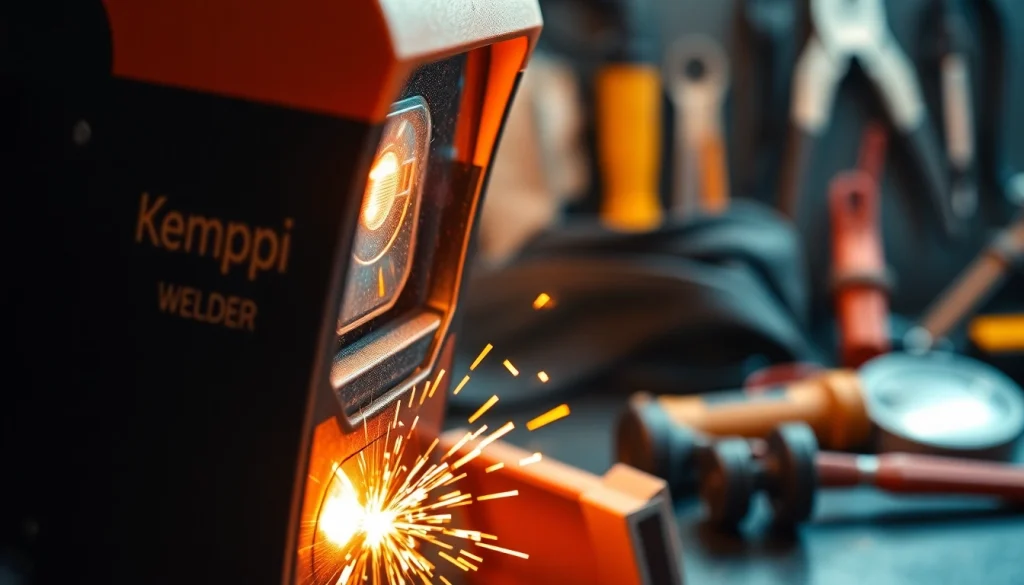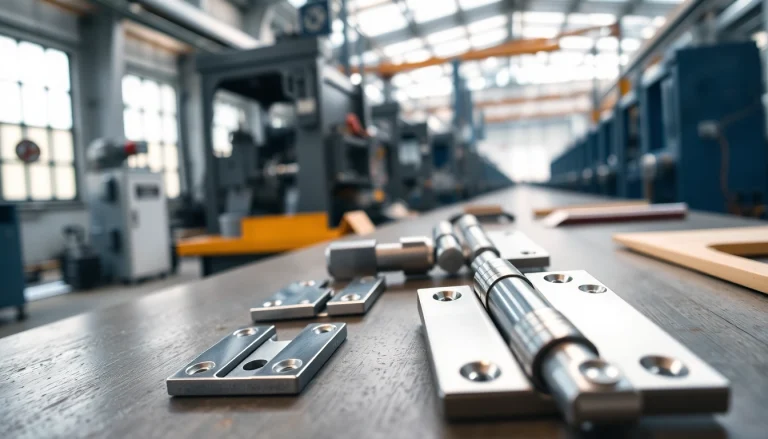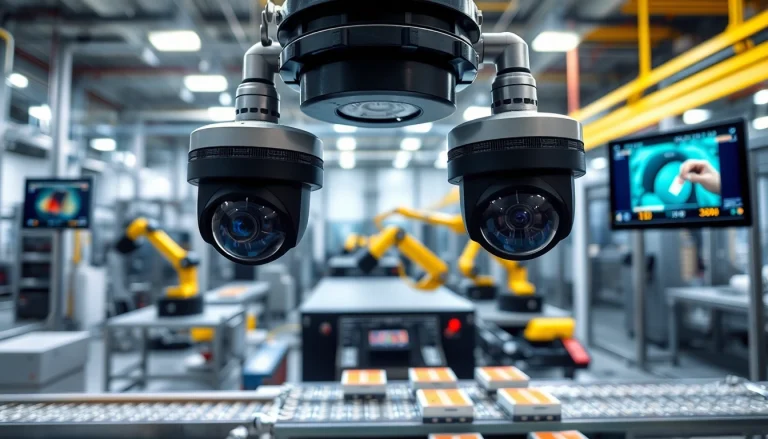
Understanding Kemppi Welders: Features and Benefits
Kemppi welders are renowned for their high-performance capabilities in both manual and automated welding applications. With a focus on innovation and efficiency, the brand has carved a unique niche for itself in the welding industry. This article explores the features and benefits that make kemppi welders a top choice among professionals and hobbyists alike, as well as providing insights into their specifications, user experiences, and comparisons with competitors.
What Makes Kemppi Welders Stand Out?
Kemppi welders are celebrated worldwide for their reliability, advanced technology, and unparalleled performance. One of the key factors that sets them apart is their commitment to innovation, which is evident in their robust lineup of products catered to various welding needs. Some of the defining characteristics of Kemppi welders include:
- Advanced Arc Technology: Kemppi welders utilize advanced arc technologies that enhance the quality and precision of welds. This includes short-circuiting and pulsed arcs that provide excellent control and less spatter.
- Diverse Range of Models: Whether you require a MIG, TIG, or stick welder, Kemppi offers machines tailored for different applications, making it easy to find a suitable model for your project.
- User-Friendly Interfaces: Many Kemppi welders come equipped with intuitive interfaces, enabling users to adjust settings quickly for improved efficiency and convenience.
- Durability and Reliability: Built to withstand demanding work environments, Kemppi welders are made from high-quality materials designed for longevity, ensuring they perform consistently even under pressure.
Top Models and Their Specifications
When exploring the best Kemppi welders, several models consistently receive high praise from users. Here are a few standout options:
Kemppi Master M 205
The Master M 205 is a versatile MIG/MAG welder that is well-suited for both industrial and DIY applications. Key specifications include:
- Welding Output: Up to 200A
- Weight: 24 kg
- Voltage Input: Single-phase 230V
- Features: Digital display, easy setup, advanced wire feeding system
Kemppi Minarc 180
This compact, lightweight model is perfect for hobbyists and smaller projects. Its specifications include:
- Welding Output: 180A
- Weight: 9 kg
- Voltage Input: Single-phase 230V
- Features: Adaptive control, digital display, portable design
Kemppi TIG 3000
For those in need of high-quality TIG welding, the Kemppi TIG 3000 is a professional-grade option with specifications that include:
- Welding Output: Up to 300A
- Weight: 30 kg
- Voltage Input: 3-phase 400V
- Features: High-frequency ignition, advanced control systems for maximum precision
User Experiences and Testimonials
User feedback plays an essential role in assessing the effectiveness of welding equipment. Kemppi welders consistently receive positive reviews for their performance, ease of use, and reliability. For example, many users report that the Master M 205 provides impressive results even for novice welders due to its user-friendly interface. Others appreciate the Minarc 180 for its portability and suitability for home projects, making it a favorite among DIY enthusiasts.
Testimonials often highlight the consistency of welds achieved, with experienced professionals praising the reduced spatter and high-quality finishes produced by Kemppi models. Moreover, customers have noted the brand’s excellent customer support, ensuring that any technical issues are promptly addressed, further establishing Kemppi’s reputation.
Choosing the Right Kemppi Welder for Your Project
Selecting the right welder requires a thorough understanding of your specific needs and project requirements. Here are several essential considerations to keep in mind:
Consumer Needs: Identifying Your Welding Requirements
Before purchasing a Kemppi welder, it’s crucial to reflect on several factors:
- Type of Welding: Determine whether you’ll be performing MIG, TIG, or stick welding. Each method has its own advantages and ideal applications.
- Material Type: Consider what materials you’ll be welding. Different machines excel with various metals, so ensure your chosen welder is compatible.
- Welding Thickness: Assess the thickness of the material to be welded. This will influence the amperage and features you may require in a welder.
- Frequency of Use: For occasional projects, a more lightweight, portable welder may suffice. For heavy industrial applications, invest in a robust model suitable for frequent use.
Budget Considerations and Value for Money
Your budget will also impact your choice of a welder. Kemppi offers machines across various price ranges, ensuring options for both hobbyists and professionals. It’s important to remember that while cheaper models may seem enticing, investing in a quality product that enhances your welding performance can save you money in the long run through reduced operational costs and increased durability.
Consider the total cost of ownership, which includes factors like:
- Initial Purchase Price
- Maintenance Costs
- Consumable Costs (such as electrodes and gas)
- Potential Repair Costs
Where to Buy: Trusted Retailers and Online Options
When looking to purchase a Kemppi welder, several trusted retailers and online platforms offer competitive pricing and quality customer service. Some reliable options include:
- Authorized Kemppi Distributors: Always consider purchasing from an authorized distributor to ensure authenticity and customer support.
- Local Hardware Stores: Many local hardware and welding supply stores carry Kemppi products, offering hands-on guidance.
- Reputable Online Marketplaces: Websites like eBay, Amazon, and welding-specifically oriented retailers are valuable resources for finding Kemppi welders at competitive prices.
Maintenance Tips for Kemppi Welders
Routine Maintenance Practices to Enhance Longevity
Follow these routine maintenance practices to keep your Kemppi welder in optimal condition:
- Regular Cleaning: Clean the welder after each use to remove spatter and debris that may accumulate. Use a soft cloth and mild cleaning solution.
- Cable Inspection: Regularly inspect power leads and ground cables for wear or damage. Replace any damaged cables immediately to prevent further issues.
- Check Gas Supply: Ensure that the gas supply is always sufficient and that your connections are tight to prevent leaks.
- Periodic Calibration: If the welder offers a calibration function, ensure it is calibrated regularly to maintain precision in settings.
Troubleshooting Common Issues
Even the best-made equipment can face issues. Here are some common problems with potential solutions:
- Inconsistent Arc: This can often be rectified by checking the power settings and ensuring that the ground connection is secure.
- Excessive Spatter: Consider adjusting the wire feed speed or voltage settings, or check the type of wire being used.
- Overheating: Ensure that you are not exceeding the duty cycle of the welder and allow it to cool down as necessary.
When to Seek Professional Service
If issues persist despite troubleshooting, it may be time to seek professional help. Symptoms that might indicate the need for professional service include:
- Persistent error messages from the machine
- Frequent overheating despite adhering to recommended usage guidelines
- Significant physical damage to the welder
Comparing Kemppi Welders with Competitors
As a leading brand in the welding industry, Kemppi welders often face competition from various manufacturers. Understanding how they compare can help prospective buyers make informed decisions.
Market Position: How Kemppi Stacks Up
Kemppi holds a prominent position in the welding market, often compared to brands like Miller, Lincoln Electric, and ESAB. While each of these brands offers quality machines, Kemppi stands out with advanced features in its welders, such as:
- Higher energy efficiency
- Superior arc control technology
- Innovative adaptive control settings
Feature Comparisons with Other Brands
In terms of features, Kemppi often integrates cutting-edge technology that can outperform its competitors in specific areas. For instance:
- Adaptive Control: This feature allows for real-time adjustments, enhancing the quality of the weld.
- Ease of Use: Kemppi welders frequently provide user-friendly interfaces that simplify adjustments for welders of all experience levels.
Critical Reviews and Comparisons
An analysis of user reviews often reveals that while competitors may offer similar specifications, the overall user satisfaction with Kemppi products tends to be higher. Factors contributing to this include:
- Consistency in performance
- Minimal maintenance
- Strong customer support
Future Trends in Welding Technology
As technology continues to evolve, so does the field of welding. With Kemppi at the forefront of innovation, understanding future trends can help technicians and welders prepare for what is ahead.
Innovations in Welders: What to Expect Next?
Future developments in welding technology will likely focus on enhanced automation, greater energy efficiency, and the integration of smart technologies. Innovations such as:
- Smart Welding Machines: These machines will leverage the Internet of Things (IoT) to provide real-time updates and optimizations during welding processes.
- Augmented Reality (AR): AR could soon be used in training and operations to provide real-time feedback and improve user experiences.
- Sustainability Efforts: Future welding equipment is expected to be more sustainable, from energy-efficient designs to the use of eco-friendly materials.
Sustainability in Welding: Kemppi’s Commitment
Kemppi has actively pursued sustainability initiatives, reflecting a commitment to reducing the environmental impact of welding processes. This includes:
- Developing energy-efficient machines that reduce power consumption during operation.
- Promoting the use of recyclable materials in their manufacturing process.
- Implementing practices to reduce waste and promote a longer lifecycle for their products.
Adapting to Industry Changes and User Needs
As user needs continue to evolve, Kemppi remains flexible and responsive to changing demands within the industry. Their focus on research and development ensures that each generation of welders not only meets but exceeds current standards.
By actively engaging with users and incorporating feedback into design and functionality, Kemppi welders are continually refined to offer unmatched performance for a wide range of applications.






